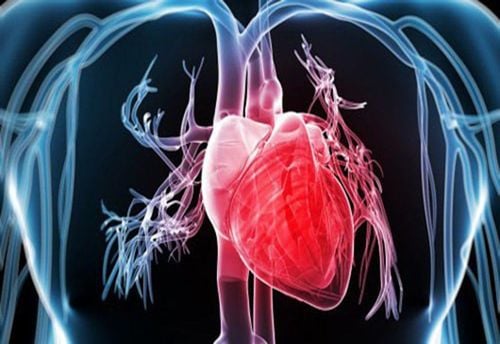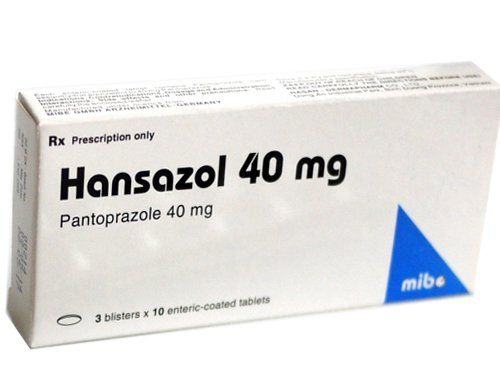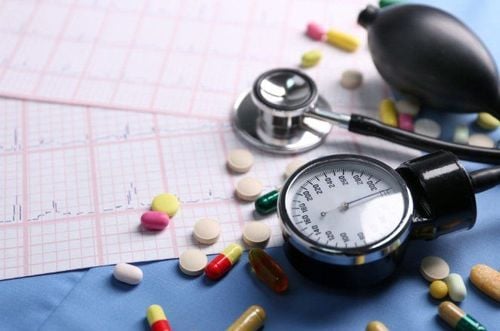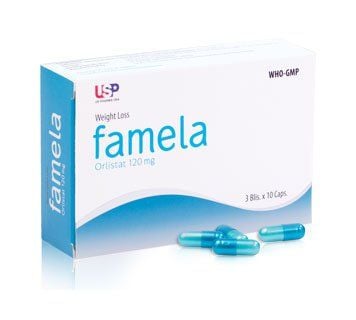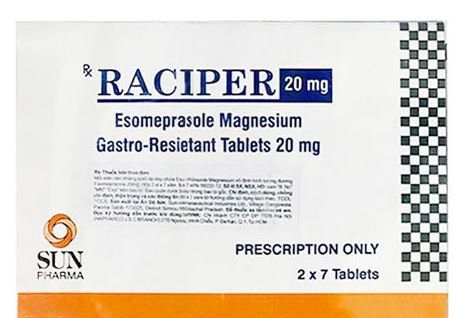This is an automatically translated article.
Ợ sour with the appearance of some substances in the stomach back up into the esophagus or food pipe causing you to feel a burning pain in the lower chest. You need to know the cause of heartburn in order to have a remedy. This article will provide information to help you better understand and better prevent this disease.
1. What is sour?
Ợ sour causes an uncomfortable burning sensation in the chest, which can move up the neck and throat. This sign can be a symptom of many different conditions, including acid reflux or gastroesophageal reflux disease (GERD), and it can even happen to women during pregnancy. pregnant.
When you have heartburn, you may also experience a bitter or sour taste in the back of your throat. The duration of heartburn can last anywhere from a few minutes to several hours. This condition often makes people feel worse after you eat or when you lie down too quickly after eating.
Heartburn is also quite common. However, if you have frequent heartburn or heartburn that is persistent and severe, it may actually be related to chronic acid reflux - GERD. You should see and talk to your doctor about your condition for prompt diagnosis and treatment.
2. Symptoms of heartburn
sour often has signs with a burning sensation in the middle of the chest, behind the breastbone. When a person has heartburn, you may also feel symptoms or signs such as:
A burning sensation in the chest area and the duration of the hot flashes can last from a few minutes to several hours. Pain in your chest when you change positions such as bending over or lying down. Burning sensation in the throat. A hot, sour, sour, or salty taste in the back of your throat. Difficulty swallowing .

Ợ chua gây ra cảm giác nóng rát khó chịu ở ngực, có thể di chuyển lên cổ và họng
3. What causes heartburn?
To know why heartburn occurs, you can understand how the esophagus and stomach work. When you eat, food travels down a long tube that connects your mouth and stomach, which is also the esophagus. At the bottom of the esophagus is a valve or esophageal sphincter. The functioning valve opens to let food pass and then closes to keep the contents of your stomach down. The inside of your stomach contains a very strong acid mixture, which starts the process of breaking down your food (digestion). The stomach functions to store acidic compounds. However, your esophagus cannot hold this mixture, and in the event these acids get up into the esophagus, it can cause damage to the esophagus.
Sometimes, the valve that separates your stomach and esophagus doesn't close properly, and some of the acid from your stomach backs up into your esophagus, causing reflux. When you have reflux, you will often feel a burning sensation and burp. There are a number of medical issues that can cause reflux and make you feel heartburn, including:
During pregnancy. Hiatal hernia (when the stomach bulges into the chest wall). Gastroesophageal reflux disease - GERD. Certain medications can cause heartburn, especially anti-inflammatory drugs and aspirin. Heartburn can also be caused by your eating habits – including the foods you eat, how large your meals are, and how close you are to bedtime – and certain lifestyle habits. certain.
Heartburn can be triggered by many different causes, which can include a part of everyday life. For many people, heartburn can be caused by a number of eating and lifestyle habits. Daily routines can involve things like eating a lot of food, eating meals too close to bedtime, or even having high stress levels where these conditions occur.
Certain foods and drinks can also cause heartburn for some people, including:
Onions. Citrus fruits. Foods high in fat. Tomato. Products made from tomatoes. Alcohol. Citrus juice. Acoholic drink. Gas drink. Habits in your lifestyle can also be considered as one of the causes of heartburn. These everyday factors are often combined with a medical condition that causes heartburn, like GERD or a hiatal hernia. We can list some habits in daily life that can cause your heartburn include:
Overweight - obesity Being a smoker. There is a high level of stress. Wear tight clothing and belts.

Hành cũng có thể là nguyên nhân gây ra chứng ợ nóng cho một số người
4. Treatment of heartburn
In most cases, heartburn can be treated at home with over-the-counter medications and lifestyle changes that cause this sensation. Heartburn is occasionally quite common and usually not serious. However, if you have frequent, persistent, and severe heartburn, then you should contact your doctor's house for timely examination and treatment. Because heartburn can be a sign of a chronic condition like GERD. GERD can lead to other serious conditions like esophagitis, Barrett's esophagus, and even cancer. Sometimes, your doctor may order an additional endoscopy to check for underlying medical conditions. Endoscopy is done to examine your digestive tract with a soft lighted instrument.
Over-the-counter medications used to treat heartburn typically include antacids and acid blockers. Antacids work to treat heartburn by reducing the amount of acid in your stomach, relieving your heartburn. Antacids can also be used to help ease upset stomach, indigestion, and other upset stomachs. Some antacids contain simethicone, which reduces gas. Antacids that can be purchased without a prescription from a doctor include: Tums®., Rolaids®., Maalox®., Gaviscon®. When taking over-the-counter medications, make sure you always follow the directions on the package or talk to your doctor about how to use antacids appropriately.
Some antacids contain magnesium or sodium bicarbonate, which can act like a laxative. Therefore, you should not use antacids if you have any symptoms of appendicitis or inflammatory bowel disease. Side effects of over-the-counter antacids can include:
Constipation. Diarrhea. White or pale stools. Stomach cramps. Serious side effects from using antacids can occur with overdose or misuse during treatment.
Acid blockers or histamine H2 blockers, or acid blockers work to reduce acid production in the stomach. Compounds in acid blockers work to relieve heartburn, acid indigestion, and stomach acidity. When taking over-the-counter medications, make sure you always follow the directions on the package or talk to your doctor about the right way to use an antibiotic. Acid blockers you can buy without a prescription include: Pepcid AC®.; Tagamet HB®.
Take your acid-blocking medicine regularly for a long time as directed by your doctor even if you have no pain or if your symptoms are in remission.
Stronger acid blockers are classed as prescription drugs and can be used to block stomach acid, treat stomach and duodenal ulcers, erosive esophagitis, and GERD. Strong acid blockers work by reducing stomach acid production. Your doctor will give you a specific prescription for this acid blocker.
The US Food and Drug Administration (FDA) recently reported high levels of a possible carcinogen, NDMA, in the medicines ranitidine (Zantac®) and nizatidine (Axid®). You need to talk to your doctor if you are using one of these medications.
Use of acid blockers can cause a number of side effects including:
Headache. Dizzy . Diarrhea. If you have any of the following serious side effects after taking an acid blocker, contact your doctor directly:
Irregular heartbeat. Unusual weakness or fatigue.
5. Use antacids and acid blockers together to treat heartburn
In specific cases, your doctor may ask you to take an antacid when you start taking an acid blocker. Antacids will keep your symptoms under control until the acid-blocking medicine starts to work. If your doctor prescribes an antacid, take it one hour before (or one hour after) when you take your acid blocker.
If over-the-counter antacids and acid blockers don't relieve your heartburn, your doctor may prescribe you other medicines, such as:
Strength acid blockers prescribed by your doctor : At prescription strength usually higher doses, Zantac®, Tagamet®, Pepcid® and Axid® can generally relieve heartburn and treat GERD. Proton pump inhibitors are more effective at blocking acid production, including Aciphex®, Nexium®, Prevacid®, Prilosec® and Protonix®. There are a number of drugs that can act as proton pump inhibitors that are available without a prescription. You can talk to your doctor about these medications to get the best option for you.

Sử dụng thuốc kháng axit và thuốc chẹn axit cùng nhau để điều trị chứng ợ chua
6. How to prevent heartburn
You can often prevent and manage heartburn symptoms by making dietary and lifestyle changes.
Do not go to bed on an empty stomach: You should eat meals three to four hours apart, which will give your stomach time to empty and reduce the risk of heartburn overnight. Avoid overeating: When you eat too many foods, it takes longer for the stomach to digest. So, cutting down on meal portions can help reduce the risk of heartburn. You can also break up your daily meals into four or five meals instead of just three main meals. Eat food slowly: Eating at a slow pace regularly can help prevent heartburn. Wear loose-fitting clothing: Tight clothing can sometimes be the cause of heartburn. Use these items in the right size to prevent heartburn Avoid certain foods: For many people, there are certain foods that cause heartburn. So you These foods should be avoided to eliminate the risk of heartburn. Maintain a healthy weight: When you can maintain a normal weight for your body or lose weight in case you are overweight, this activity can help you reduce heartburn symptoms. Don't smoke: The nicotine in cigarettes can have an effect that weakens the lower esophageal sphincter through the valve that separates your stomach and esophagus. Do not smoke is recommended for your general health, as well as the strength of this valve during operation. Sleeping on the left side: When you lie on your left side and sleep, it can help digest and remove acid from your stomach and esophagus faster. Plan your exercise to avoid heartburn: You can wait at least two hours after a meal before exercising. If you exercise earlier, you may experience heartburn. You should also drink plenty of water before and during exercise. Water helps digestion work better and can minimize heartburn and prevent dehydration of the body. If you have heartburn more than two or three times a week, talk to your doctor. In some cases, they may prescribe medications or other treatments.
Please dial HOTLINE for more information or register for an appointment HERE. Download MyVinmec app to make appointments faster and to manage your bookings easily.
Reference source: webmd




